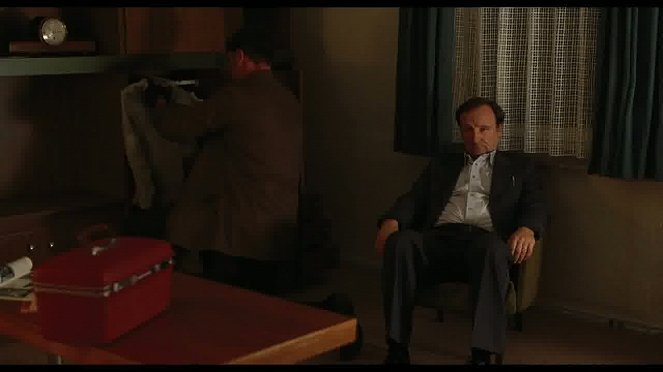Director:
Christian PetzoldGuión:
Christian PetzoldCámara:
Hans FrommMúsica:
Stefan WillReparto:
Nina Hoss, Ronald Zehrfeld, Rainer Bock, Deniz Petzold, Jasna Fritzi Bauer, Peer-Uwe Teska, Mark Waschke, Kirsten Block, Susanne Bormann (más)Streaming (1)
Sinopsis(1)
RDA, verano de 1978. Barbara es una doctora que estuvo presa en Berlín Occidental. Cuando sale en libertad, la mandan para ayudar en un hospital en medio de un pueblo en la parte Oriental. Lo que empieza siendo una tortura (con inspecciones habituales de guardias) termina siendo una rutina en la que se va adaptando con la ayuda del jefe de médicos del hospital. Hay dos subtramas que permiten agregarle tensión y drama al relato. La primera relacionada con una prisionera embarazada de campos de prisioneros; la segunda el caso de un chico que intentó suicidarse. Esto, sumado a los conflictos de la propia Bárbara que no sabe si quedarse con su novio, que le promete la libertad o el médico que la va a ayudar a perfeccionarse en su profesión. La regla es saber convivir con esa represión política. (Golem Distribución)
(más)Reseñas (3)
Un buen drama, cuya conclusión es desafortunadamente demasiado cómoda desde el punto de vista del guión y ligeramente 'telenovela'.
()
Barbara is a gem, and not only in comparison with strained, black-and-white Czech cinematic throwbacks to the period of normalisation. Petzold doesn’t work with flattening oppositions, as he takes multiple perspectives into account and confronts the titular protagonist with complex moral dilemmas. As with the other characters, Barbara is for us a woman of mystery who is hiding something. We don’t know what she is guilty of or what her intentions are. Based on the mistrustful glances of others, as well as on the way the camera captures her, it is apparent that Barbara is under constant surveillance. With her privacy gone, she has no reason to feel joy. She doesn't believe in happiness; fear is her predominant emotional state. Her helpfulness towards others is selfish. If she needs nothing, she does not allow others to physically approach her and she communicates with them in curt sentences. She prefers to express herself only by playing inoffensive music on the piano. Patients are an exception – a promise that it is possible to do something meaningful even in the depersonalised era of Communist torpor. Thanks to the ambiguous characters, attention to detail (sticking band-aids on ankles, leafing through a Western catalogue) and the subtle production design (the props don’t draw attention to themselves, but are just simply in the shot), the world of East Germany depicted in Barbara seems very authentic and not like an excursion to a museum of Communism. (A nice example of the unforced rendering of the reality of the time is the clash of two worlds, represented by a Trabant and a Mercedes on a forest road.) Whereas Czech filmmakers scream about how all Communists were swine and how hard life was for decent people, Petzold neither slips into such generalisations nor engages in a transparent attack on the system. He touches on the major history through a single small, intimate story, which does not prevent him from simultaneously capturing the atmosphere of the time and posing some timeless questions about a person’s responsibility for others. Barbara is an extraordinarily powerful drama even without powerful language. It simply works. 80%
()
En un ritmo lento, se desarrolla el dramático destino de una mujer a quien la vida no ha tratado con delicadeza y le ha presentado al "hombre equivocado". La película se basa en la creíble y digna actuación de Nina Hoss. Tampoco falta un toque de humor en la sofocante atmósfera de la Alemania Oriental de los años ochenta.
()

